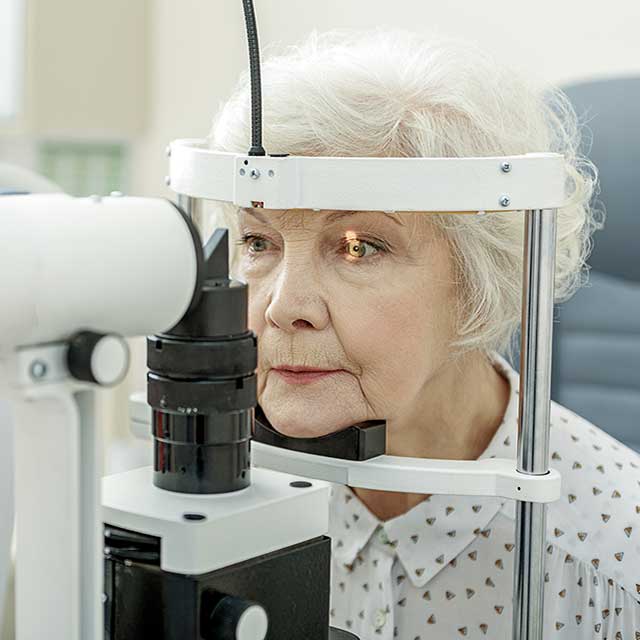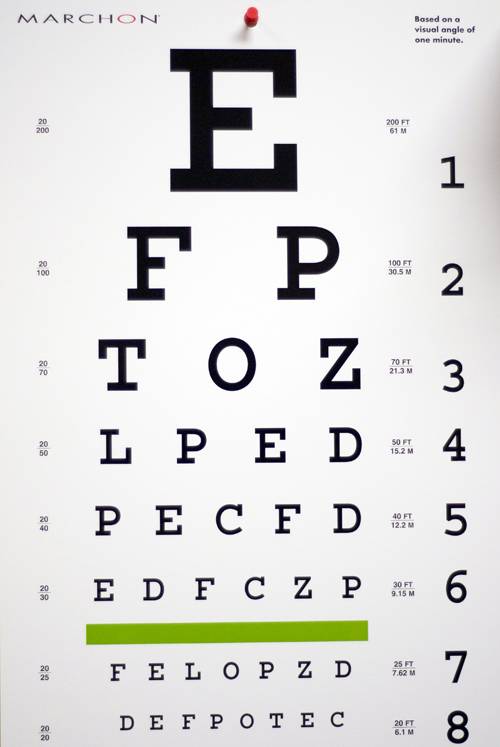Eye Care As You Age With Village Eye Centre
These days, more and more of the global elderly population is enjoying their golden years with an active and healthy lifestyle. There is an unprecedented quality of life for seniors that makes quality geriatric eye care even more important than ever.
Unfortunately, with aging also comes an increased need for comprehensive eye exams and for high-level, advanced treatment of many common ocular diseases, such as cataracts, glaucoma, macular degeneration and diabetic retinopathy.
Our North Edmonton eye care team is here to help!

Eye Exams to Diagnose Ocular Disease
Comprehensive eye exams for people over 65 pay special attention to signs of age-related diseases, such as macular degeneration, diabetic retinopathy, glaucoma and cataracts. These exams are recommended annually, even if your sight seems fine and you’re not experiencing any symptoms. Many common eye diseases progress very slowly and don’t show signs or symptoms until it is too late to prevent eye damage and vision loss.
Systemic illnesses and conditions such as hypertension, diabetes and cardiovascular disease become more common as people age, and are strongly associated with eye health problems. A total geriatric eye exam will inspect for the signs or effects of these risk factors.
Management of Cataracts
Cataracts are among the most common ocular diseases in the elderly, and another significant feature of geriatric eye care is quality preoperative and postoperative management for cataract surgery. The specialized attention given by dedicated geriatric optometrists has been linked with more successful outcomes from surgical procedures to remove cataracts.
Vision Testing in North Edmonton
Fortunately, many visual conditions in seniors are treatable, and optometrists are now being specially trained to evaluate eyesight in people over 65. An assessment of visual acuity is a vital part of complete eye examinations for seniors. Statistics report that as many as 94% of patients in nursing homes require eyeglasses for myopia or presbyopia, yet sadly only 31% may be wearing appropriate vision correction!
Untreated visual impairment can put the elderly at risk for eyestrain, blurry vision and increased risk of falls due to decreased coordination and poor balance. These falls are particularly hazardous, as they lead to a higher risk of injury and dependence, which can severely impact quality of life.
An up-to-date vision prescription and adequate eyeglasses are imperative for long-term health of the whole body.


Low Vision Specialists
If you have Low Vision, qualified eye specialists can provide advice and assistance regarding specialized devices and aids to make the most of your remaining vision. Low vision can have a negative impact on the ability to perform routine tasks, such as driving, cooking or reading. This lack of mobility and total dependence on friends and family can lead to frustration and depression.
Optometrists who specialize in geriatric eye care understand the need to help older adults maintain their independence as much as possible.
Eye Symptoms and Warning Signs
Routine geriatric eye examinations are the best preventive medicine, however there may be significant symptoms that appear in between eye doctor exams, and these should not be ignored!
If you experience any of the following signs, it’s advised to schedule a visit to your eye doctor:
I’m seeing floaters across my vision…
Noticing tiny shapes that seem to drift across your field of vision may be meaningless, or it may indicate a retinal detachment.
I think I am having vision loss…
This could be due to macular degeneration or a severe migraine, or it could point to various other eye conditions. It could also mean that a stronger eyeglass prescription is needed.
My eyes are tearing a lot…
Excess tears could indicate many conditions, including allergies, an irritating substance in the eye, corneal abrasion or infection.
I am having trouble with my eyesight…
Changes in eyesight, such as trouble focusing, double vision, blurry or cloudy vision, seeing halos around lights, poor night vision, sensitivity to light, seeing spots or flashes of light, viewing wavy lines instead of straight and trouble identifying colors, are all warning signs to call an eye doctor.
My eyes always seem to twitch…
This may be a sign of a muscle problem or other health condition.


If you’re over 65 and notice any of the following, it’s recommended to book an appointment at the eye doctor:
- Excessive blinking or squinting
- Loss of coordination, such as tripping or bumping into things all of the time
- Trouble reading signs or recognizing people
- Wearing clothing that is mismatched or stained
- discharge from the eye, itching and burning, pain, eye fatigue or trouble with closing your eyelids.
- Objects or words appearing blurry unless you hold them close to your face
